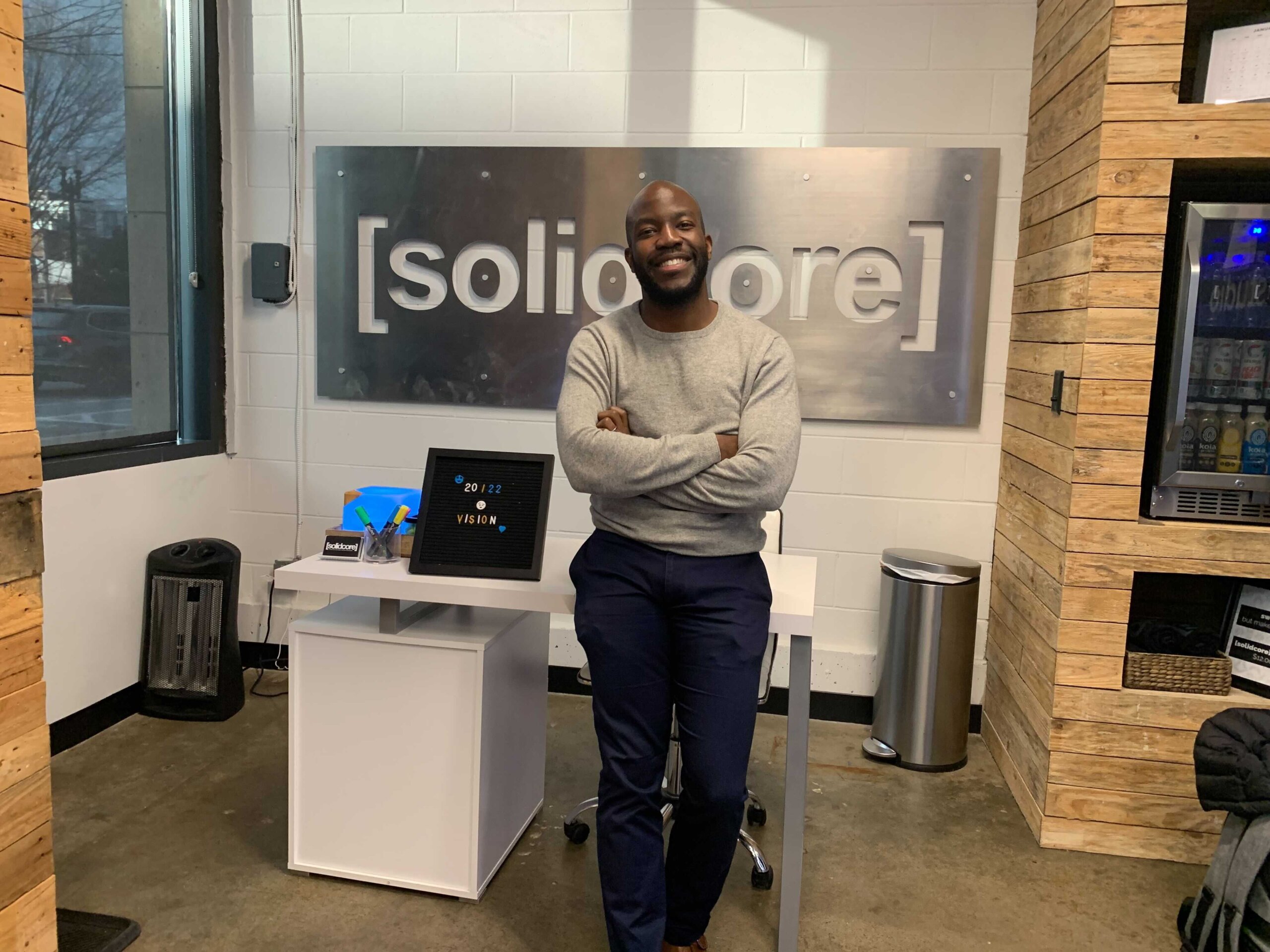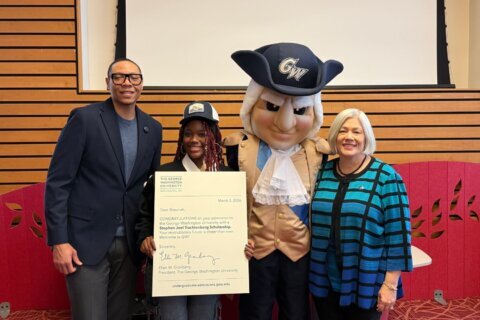This report is part of WTOP’s coverage of Black History Month. Read more stories on WTOP.com.
For people who live in the D.C. region, salad restaurant Sweetgreen and fitness center Solidcore are most likely familiar business names.
Those two companies, which started in the region, now reach far beyond it — and both have something in common: They have seen great success with a Northern Virginia native in a leadership role, Bryan Myers.
Now president and CEO of Solidcore, Myers has, over the past four years, overseen the expansion of the boutique fitness company from around 25 locations to just over 80 around the nation.
Growing a company’s footprint is something Myers knows how to do. Before Solidcore, he served in leadership roles at Sweetgreen, helping grow the chain from around 20 to almost 90 locations.
With his resume, some might say Myers has made it — but the 34-year-old said he doesn’t believe there is a moment at which “you arrive” or “you have made it.” Instead, he said there is always something to learn from people around you.
“That openness and curiosity is what makes the great leaders, the great leaders that they are,” Myers said.

Myers, who grew up in Stafford County, Virginia, and graduated from the University of Virginia, said that as he looks back at his career, his parents were a major source of inspiration.
“My parents were both from very poor families, neither one of them college educated, but really pushed me to do everything I could to achieve my wildest dreams,” he said.
But the road to success wasn’t an easy one. Myers, who is Black, said there have been struggles that he has had to face because of the color of his skin as he has risen through the ranks.
Among those trying moments, he said, were being misunderstood and being accused of being an “angry Black man” when he would come into meetings with the same level of passion others would display.
“I think in those moments, you can use those moments and fall into the depression of them or you can use those moments to say no, this is my rightful seat at the table and I will continue to express myself as the leader that I am,” Myers said.
He said those moments can also be used to educate others about how their biases might be creeping into the way they view others.
Myers said in many ways his identity as a Black man in America has gotten him to where he is today. He urges young people who may want to start or lead a business, especially those who live in underserved communities, to use the “super powers” they have gained from what they have experienced to propel them.
“I am a more empathetic leader, I’m a better listener, I am more connected to my team, I am a more authentic individual because of the unique struggles that I’ve had being a Black man in America,” Myers said.
Myers also believes honesty is the best policy and as a country he feels we are in a time where there is more tolerance for “calling it like it is.”
“When you find one of those moments where there is a micro aggression, or there is someone who is misinterpreting you, don’t feel like you need to keep that to yourself, be open about it,” he said.
Myers said it is also the responsibility of leaders — especially those not from underrepresented communities — to be “eyes wide-open” to the talent that is in front of them.
“And making sure they’re providing that talent with the opportunities to become the amazing future leaders that they can be,” he said.








